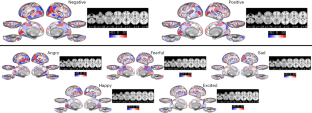2023-06-09 ワシントン大学セントルイス校
◆この研究は、前立腺がん細胞がテストステロン欠乏療法に適応する方法についての長い課題に答えを提供し、前立腺がんの一般的な抗テストステロン療法に耐性を持つ腫瘍に対する新しい治療戦略を示唆しています。
<関連情報>
- https://medicine.wustl.edu/news/study-reveals-how-treatment-resistant-prostate-cancer-supplies-its-own-hormonal-fuel/
- https://www.nature.com/articles/s41467-023-38887-7
ヒストンH2A Lys130アセチル化が前立腺がんにおけるアンドロゲン産生をエピジェネティクス的に制御する Histone H2A Lys130 acetylation epigenetically regulates androgen production in prostate cancer
Thanh Nguyen,Dhivya Sridaran,Surbhi Chouhan,Cody Weimholt,Audrey Wilson,Jingqin Luo,Tiandao Li,John Koomen,Bin Fang,Nagireddy Putluri,Arun Sreekumar,Felix Y. Feng,Kiran Mahajan & Nupam P. Mahajan
Nature Communications Published:09 June 2023
DOI:https://doi.org/10.1038/s41467-023-38887-7

Abstract
The testicular androgen biosynthesis is well understood, however, how cancer cells gauge dwindling androgen to dexterously initiate its de novo synthesis remained elusive. We uncover dual-phosphorylated form of sterol regulatory element-binding protein 1 (SREBF1), pY673/951-SREBF1 that acts as an androgen sensor, and dissociates from androgen receptor (AR) in androgen deficient environment, followed by nuclear translocation. SREBF1 recruits KAT2A/GCN5 to deposit epigenetic marks, histone H2A Lys130-acetylation (H2A-K130ac) in SREBF1, reigniting de novo lipogenesis & steroidogenesis. Androgen prevents SREBF1 nuclear translocation, promoting T cell exhaustion. Nuclear SREBF1 and H2A-K130ac levels are significantly increased and directly correlated with late-stage prostate cancer, reversal of which sensitizes castration-resistant prostate cancer (CRPC) to androgen synthesis inhibitor, Abiraterone. Further, we identify a distinct CRPC lipid signature resembling lipid profile of prostate cancer in African American (AA) men. Overall, pY-SREBF1/H2A-K130ac signaling explains cancer sex bias and reveal synchronous inhibition of KAT2A and Tyr-kinases as an effective therapeutic strategy.


